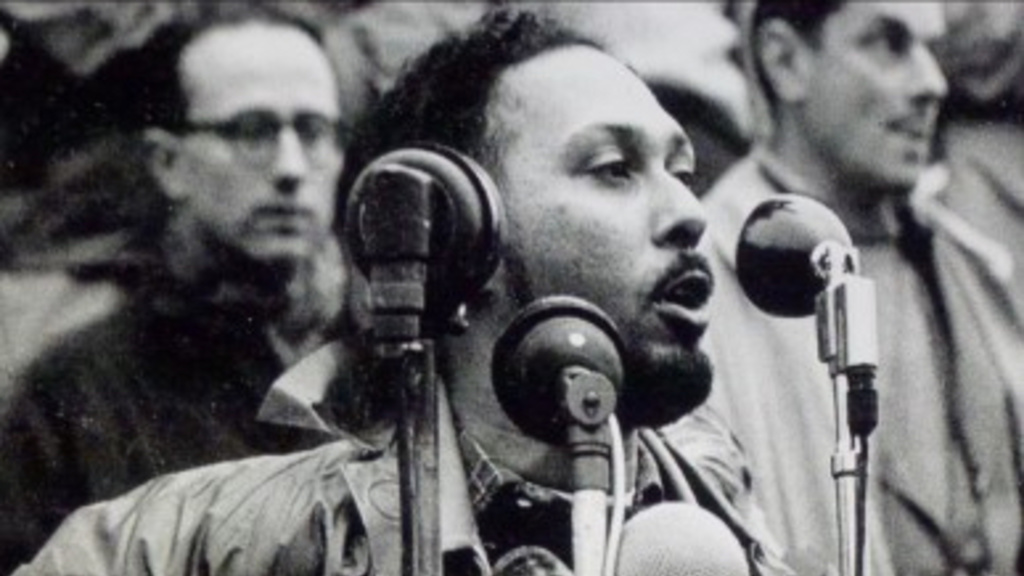
Addressing the Crisis: The Stuart Hall Project
This working group creates a space for scholars to engage with the work of Stuart Hall. We use the new Duke University Press series on Hall as a starting place to read and be in dialogue about Hall’s contribution to cultural studies, especially in regards to difference, cultural production, and emancipatory theory. For 2019‐2020, we will also facilitate a daylong symposium, “Digitizing Blackness." In addition to reading Hall’s work, workshopping our research, and facilitating symposia, our group will write, support, and solicit pieces for the new, open-access journal that launched in April 2019, Addressing the Crisis: The Stuart Hall Project. The journal emerged out of a former Obermann Comparative Ethnic Studies Working Group event where we read Hall’s anthology on selected political writings.
As we move forward, we will amplify the roots of cultural studies at Iowa. Indeed, the University of Iowa’s connection to Stuart Hall and cultural studies is a special one. As David Morely and Kuan-Hsing Chen write in the introduction to Critical Dialogues in Cultural Studies: Stuart Hall (1996):
In 1985, Stuart Hall was invited, as Ida Beam Professor, to deliver a series of lectures on the University of Iowa campus. Intrigued by his "passion, intensity and intellectual generosity," the Journal of Communication Inquiry, organized by graduate students of the School of Journalism and Mass Communication [at the University of Iowa], decided to devote a Special Issue of their journal to Stuart Hall, in recognition of his long-term contribution in opening up spaces for critical scholarship. Kuan-Hsing Chen edited that Special Issue. It was clear that the task was not naively to celebrate the work of a committed intellectual but rather to take the opportunity to productively facilitate further "critical dialogues."
This working group will engage in discussions about race and ethnicity as it intersects with gender, sexualities, ability, and class in national and transnational contexts. Our goal is to cultivate an alliance among scholars who yearn to engage in a conversation beyond a particular discipline and racial-ethnic group, and to think through points of continuity between historically marginalized groups and aggrieved communities. We see this group as a space to focus on contemporary social movements of Indigenous Nations Peoples and Latino/as, African and Asian diasporas, borderlands, cultural production in the U.S., Europe, Asia, Mexico, Africa, and Latin America, and critical whiteness studies, with a particular focus on Hall, his predecessors, and those influenced by Hall’s contribution to sociology, film studies, popular culture, and cultural studies.
To learn more about this group, contact Deborah Whaley at deborah-whaley@uiowa.edu.
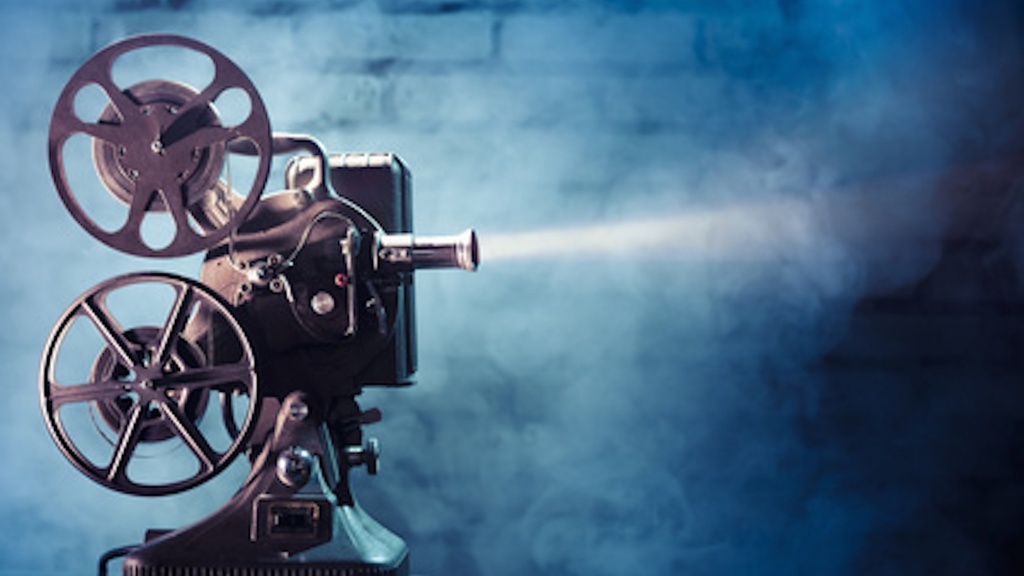
Contemporary Literary & Film Theory
The Contemporary Literary and Film Theory Working Group explores the ways in which debates in contemporary literary theory and film theory do and do not overlap. While the disciplines of literary studies and film studies have developed in parallel since the 1970s, the theoretical debates in each discipline have a more varied trajectory. For example, the disciplines have considered the relation between print and audiovisual culture and processes globalization from quite different perspectives, even though the concept of transnationalism has been a key term in both disciplines for at least decade. Likewise, both disciplines have reevaluated the relation between ethics, politics, and the arts, but have come to different conclusions regarding central aspects of the relation (including matters of subalternity and counter-hegemony). Finally, matters of digital or new media have prompted both disciplines to reconsider previous theoretical work on narrative and discourse.
To learn more about this working group, please contact its director, Kathleen Newman (kathleen-newman@uiowa.edu).
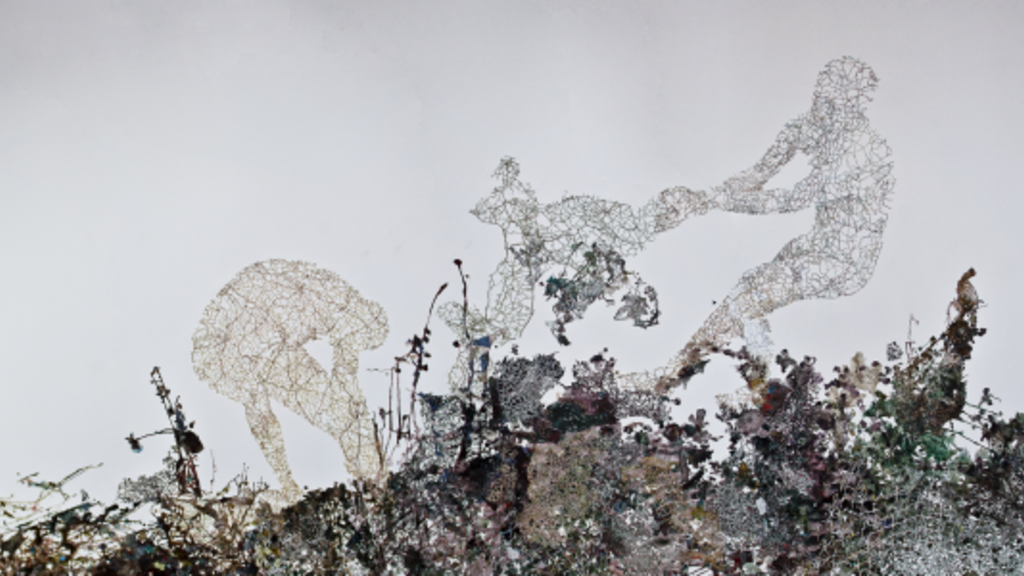
Latina/o/x Studies
This working group is led by Rene Rocha, one of the directors of the 2019-2020 Andrew W. Mellon Sawyer Seminar, “Imagining Latinidades: Articulations of National Belonging,” which brought national and international topic experts to campus in the 2019–2020 academic year. In order to keep the discussion going after the Seminar, this working group will facilitate focused discussion on the scope and terrain of Latina/o/x Studies.
To learn more about this group, please contact its director, Rene Rocha.
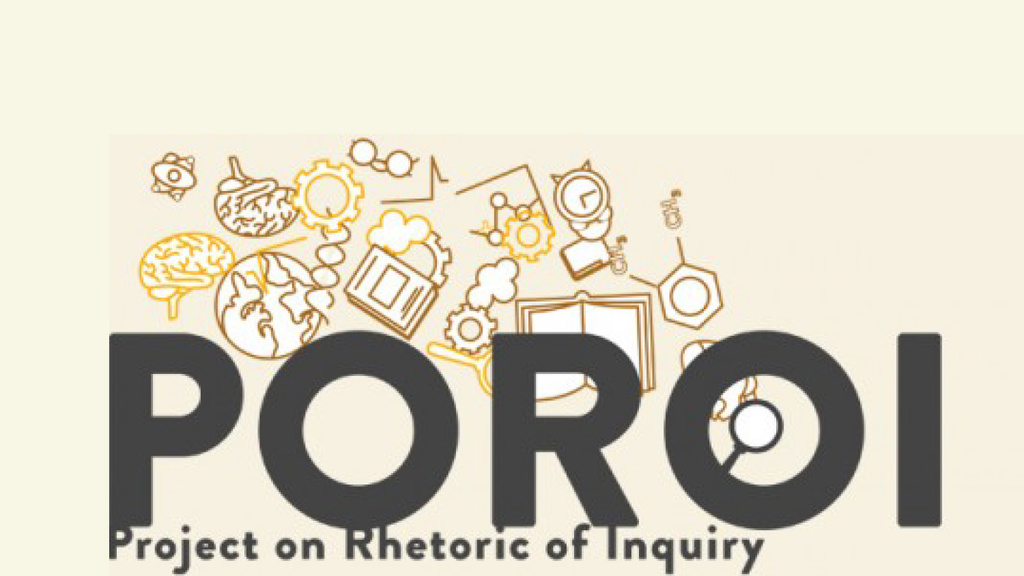
POROI: Project on Rhetoric of Inquiry
The Project on Rhetoric of Inquiry (POROI) is an interdisciplinary institute for research and public engagement housed at the Obermann Center at the University of Iowa. Its mission is to explore how scholarship and professional discourses are conducted through argument, how paradigms of knowledge are sensitive to social-political contexts, and how the presentation of scholarly and professional findings involves the recognition and negotiation of audiences.
Since its founding in 1980, POROI has provided resources for strengthening academic inquiry, creativity, and communication in the arts, humanities, sciences and professions. It is especially interested in communicative opportunities and problems that arise at the intersections between disciplines as well as between academia and diverse publics. In these respects, POROI applies the art of rhetoric to the conduct of inquiry. Its concerns range from the invention and construction of arguments to a marked interest in how discourse is interpreted, received, and disseminated in both technical and public spheres of argumentation. POROI is a constituent participant in Iowa’s Writing University Initiative.
The POROI Journal examines the rhetoric of knowledge production in and across venues, sites and disciplines; the ways knowledge flows between technical, public and personal spheres; and inquiry's argumentation, dissemination, reception and lived practices.
To learn more about POROI, please contact Naomi Greyser.

Sustainability & the Environment
The Sustainability and the Environment Working Group is exploring the potential of creating a campus field school or field lab to help demonstrate, measure, monitor, and meter climate change locally in real time. With this field school or field lab(s) we aim to provide learning opportunities to a broad range of courses, groups, and activities on campus to embed the field school within their classes and activities, with the aim of incorporating climate change into the classroom across colleges and topics.
To learn more about this group, contact its director, Blake Rupe.

Algorithms and Social Media
This group brings together scholars from the humanities, social sciences, and STEM sciences to explore the functioning and implications of large data generated by social networking applications. The goal is for humanists and social scientists to get a better idea of how algorithms in social media actually function, while introducing scientists to some of the emerging critiques of big data and algorithmic culture in the humanities and social sciences.
To learn more about this working group, contact Brian Ekdale at brian-ekdale@uiowa.edu or Rishab Nithyanand at rishab-nithyanand@uiowa.edu.
(Photo credit: StartBloggingOnline.com)
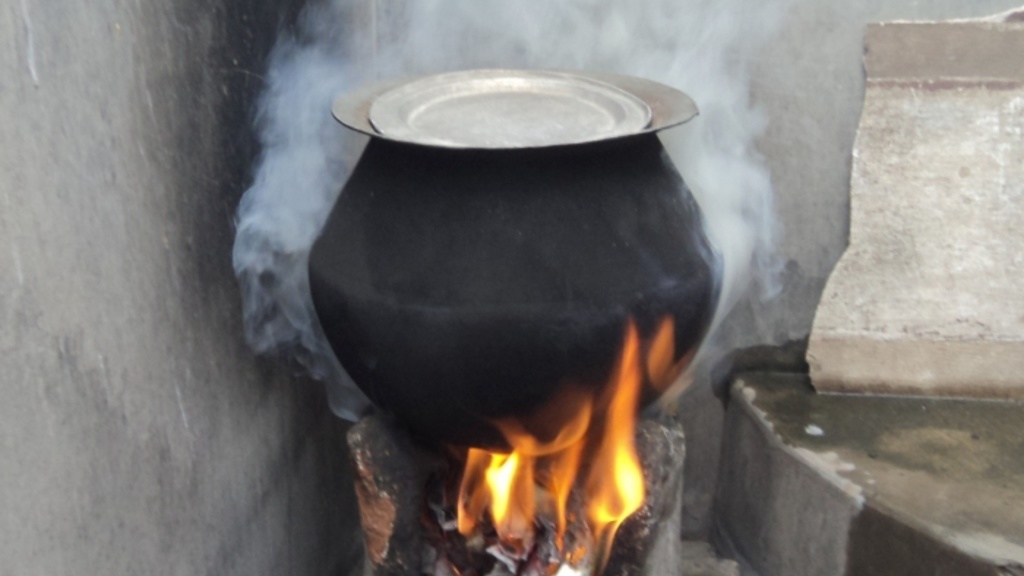
Environmental Futures
Members of the Environmental Futures Working Group will read and discuss current research (including members' own work-in-progress) on a set of environmental processes that are simultaneously natural, material, social and imaginative. One of their goals is to learn more about socio-economic, demographic and programmatic factors that correlate with adoption and diffusion of cooking technologies (like chulhas and LPG) in India; they also define ‘technology’ broadly to include social institutions, procedures of forest management, and hybrid seed varieties. Another, broader goal is to better understand the current state of research on forests and agriculture in South Asia. These goals are part of an overarching effort to grapple with and understand how the dynamics of global socio-economic and technological changes impact a particular region on the planet, though these impacts speak to broader dynamics between Global North and Global South.
This kind of collaboration across the divides of science and critical theory, of quantitative and qualitative methods, is challenging and requires ongoing discussion. In addition to engaging current research and governmental initiatives regarding development and environment, particularly with regard to forests, these regular meetings will provide a space to explore opportunities for external funding.
To learn more about this group, contact its directors, Meena Khandelwal and H.S. Udaykumar.
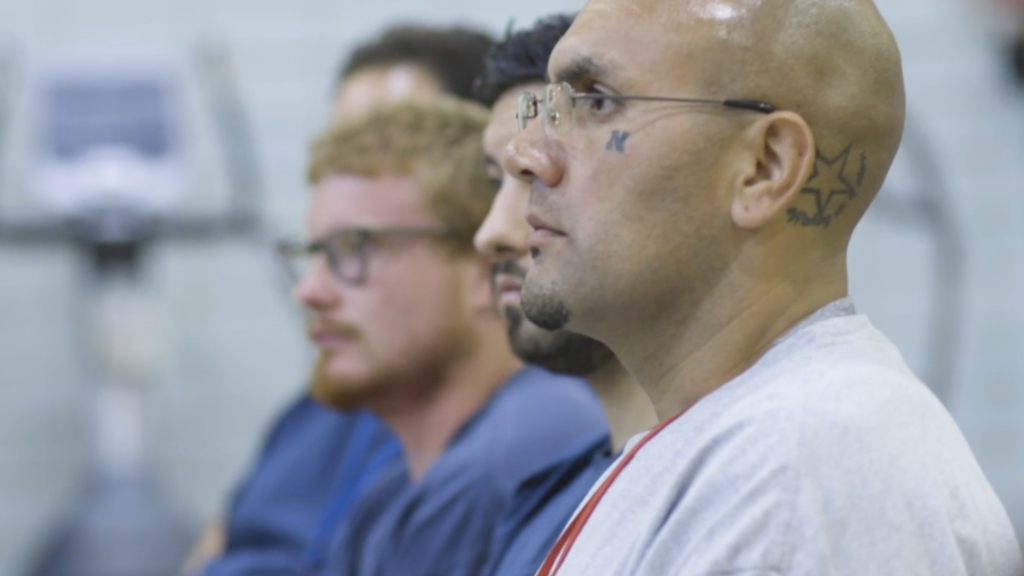
Liberal Arts Beyond Bars College in Prison Program (UI LABB)
The UI Liberal Arts Beyond Bars college in prison program has been offering credit-bearing coursework to students incarcerated at the Iowa Medical and Classification Center (Oakdale Prison) for the past three academic terms. We have recently also incorporated online access to coursework toward an associates degree through Iowa Central Community College in Fort Dodge. This partnership allows the UI to serve in the capacity to which it is best suited: offering upper-level coursework toward a bachelor's degree.
To learn more about this group, contact Heather Erwin at heather-erwin@uiowa.edu.
Reproductive & Maternal Politics
This working group brings together faculty, graduate students, and community activists with diverse interdisciplinary backgrounds to explore urgent matters that center on motherhood and the struggle for reproductive justice. Drawing on anthropology, history, sociology, communication, and critical cultural studies, our goal is to craft a rigorous space of inquiry that can begin to untangle the stakes and challenges (perhaps even potential paths forward) for a complex set of issues that bears meaningfully and immediately on the lives of women and girls in particular and increasingly in the lives of trans and gender non-conforming people. Shared readings will inform an ongoing and nuanced conversation about reproductive politics in local, regional, national, and transnational contexts. Topics include racism and reproductive injustice, teen motherhood and stigma, public policy and legislative initiatives, histories/meanings of motherhood, movements for reproductive health, queer family formation, and how these intersect with immigration, environmental devastation, the rise of white nationalism and white supremacy, and the carceral state.
To learn more about this group, contact Natalie Fixmer-Oraiz, natalie-fixmer-oraiz@uiowa.edu.
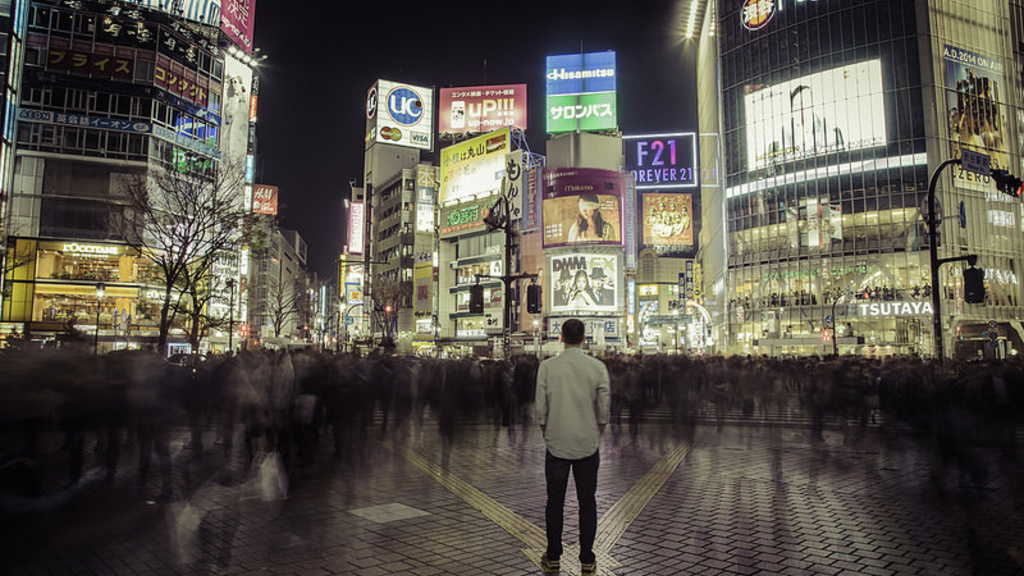
Translation in the Humanities
Across the humanities, translation has always been either an object or a mode of inquiry. Many U.S. scholars who work with non-English sources often incorporate passages they translate into their published work, and of course continuously do their own translations for their research and teaching. Scholars who do translation come from a wide range of disciplines, such as Classics, Philosophy, Religious Studies, History, English, Art History, various area studies, and of course, Literary Translation. However, most such scholars have little or no training in translation studies and often do their translations in a somewhat unreflective way. The purpose of this working group is to cultivate a learned and thoughtful community of scholars who do translation at the University of Iowa and that supports both the professional development of each faculty member as well as translation as an interdisciplinary field of practice and study.
To learn more about this group, please contact its co-directors, Aron Aji (aron-aji@uiowa.edu) and Morten Schlütter (morten-schlutter@uiowa.edu).
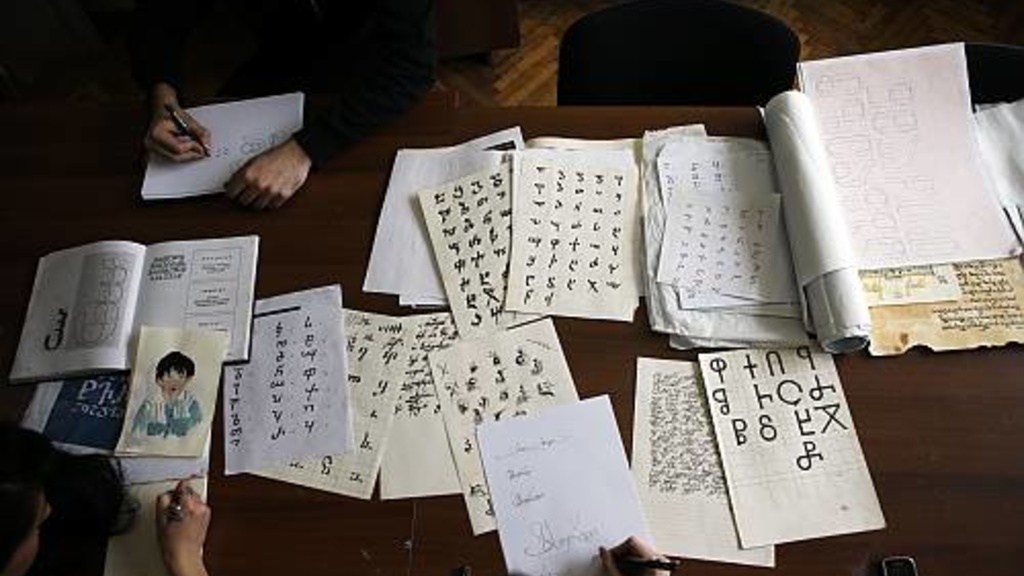
The Cassandra Project: Critical Approaches to the Study of Scripting & Reading Apparatuses
The goal of this working group is to initiate a broadly interdisciplinary, campus-wide conversation about the histories, multifarious forms, complex dynamics, and social impacts of writing systems in the broadest sense. The group's inquiry focuses on cultural technologies of notation—from the various ways of writing different languages (logographic, alphabetic, etc.), music and math notation, semasiography, khipus, pictographs, all the way to computer programming and AI. Members will be comparing diverse types of notations and ask how they differ functionally from each other.
To learn more about this working group, please contact its director, Sabine Gölz, at sabine-golz@uiowa.edu.

Global Media Studies
The Global Media Studies Working Group brings together scholars from the social sciences and humanities to explore enduring and emerging issues in global media research. This working group is the starting point for a collaborate research group dedicated to issues in global media studies research. The end goal of the working group is to establish a sustainable “global media” research group that will conduct large-scale collaborate projects, including comparative research (exploring research questions in various countries or regions) and research that relies on mixed methodologies and new data collection techniques.
To learn more about this working group, please contact its director, Melissa Tully (melissa-tully@uiowa.edu).
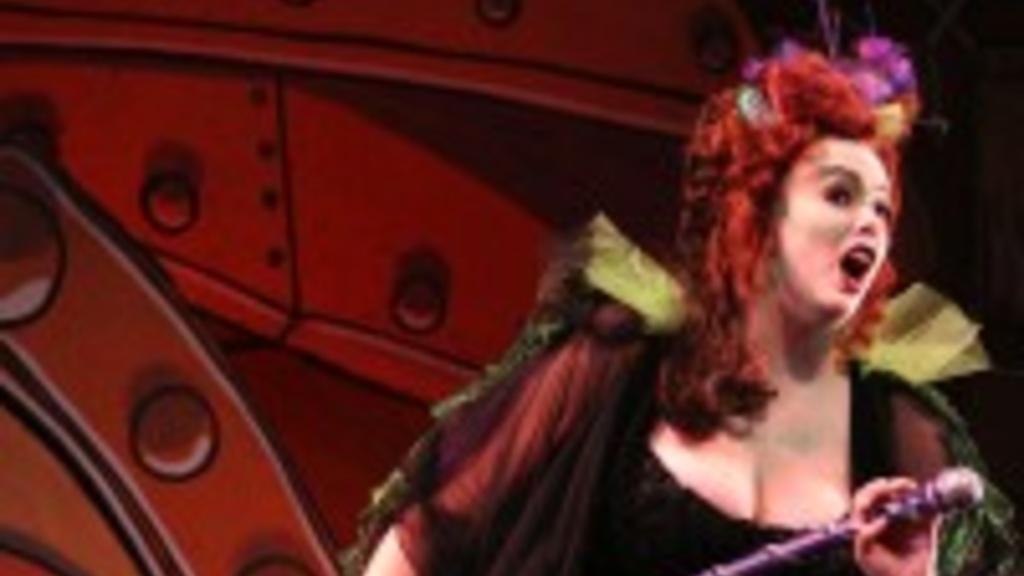
Opera Studies
The Opera Studies Working Group offers a variety of lectures and activities that are free and open to all members of the University and beyond. Please explore the group's website, https://operastudies.wordpress.com, to learn about the group's purpose and history, view archived events, and see what other resources are available with regard to opera.
To learn more about this group, contact its director, Robert Ketterer (robert-ketterer@uiowa.edu).
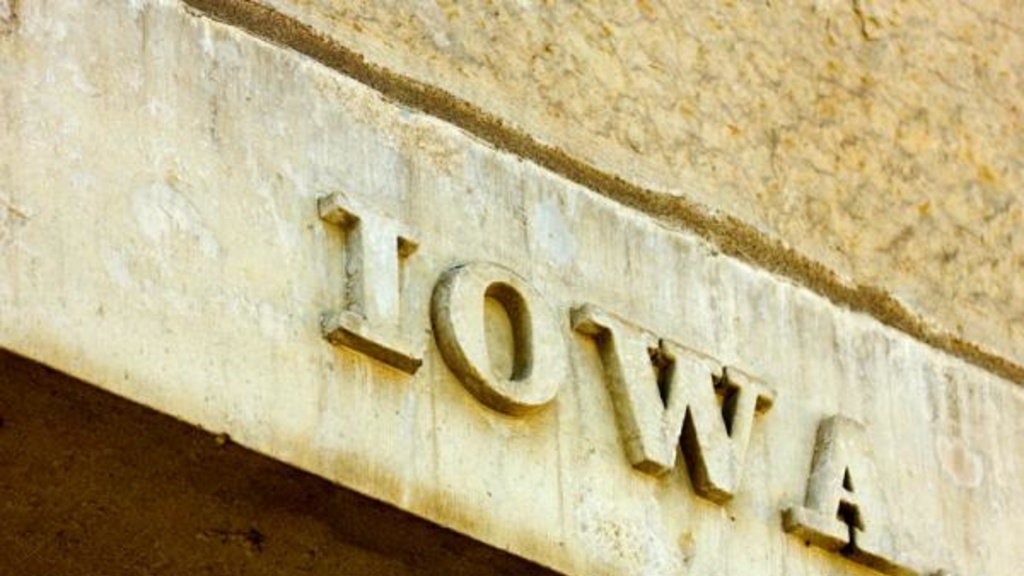
Scholarship of Public Engagement
Now in its eighth year, this working group will focus on reading about the existing research where the voices of community partners are at the center of publicly engaged scholarship. This working groups intends to co-author more collaborative pieces that bring in the voices of community partners, an aspect that is largely missing from the scholarly work on publicly engaged scholarship.
As publicly engaged scholars, the members of this working group believe that at the center of engaged scholarship are campus-community partnerships reflecting careful partnerships and ethical principles of engagement. The group is aware that power, position, and resources may disrupt well-intended activities of public engagement. As such, the group remains sensitive to the power and position members occupy as representatives of the University. As its members are researchers/scholars, the group's scholarship often focuses on those who are less powerful and represent groups who are different with regard to race/ethnicity, language, literacy, and class, and face dramatic health disparities and experience gaps in education. Creating sensitive campus-community partnerships requires constant monitoring of ethics so that communities/local residents do not become laboratories for University research.
Second, from an academic perspective, the members are mindful that engaged scholarship requires time and energy investments and still may not be valued in the academy. Since Year 1, the group's discussions have focused on how members might move the academy so that colleagues and administrators understand the value in publicly engaged efforts of teaching and scholarship. The group will continue discussions focused on creating and maintaining sensitive partnerships with community members while also exploring new visions of engaged scholarship in rural southeastern Iowa. Finally, this working group intends to continue to explore how members can mentor colleagues and graduate students interested in similar work.
To learn more about this group, contact Carolyn Colvin, carolyn-colvin@uiowa.edu.
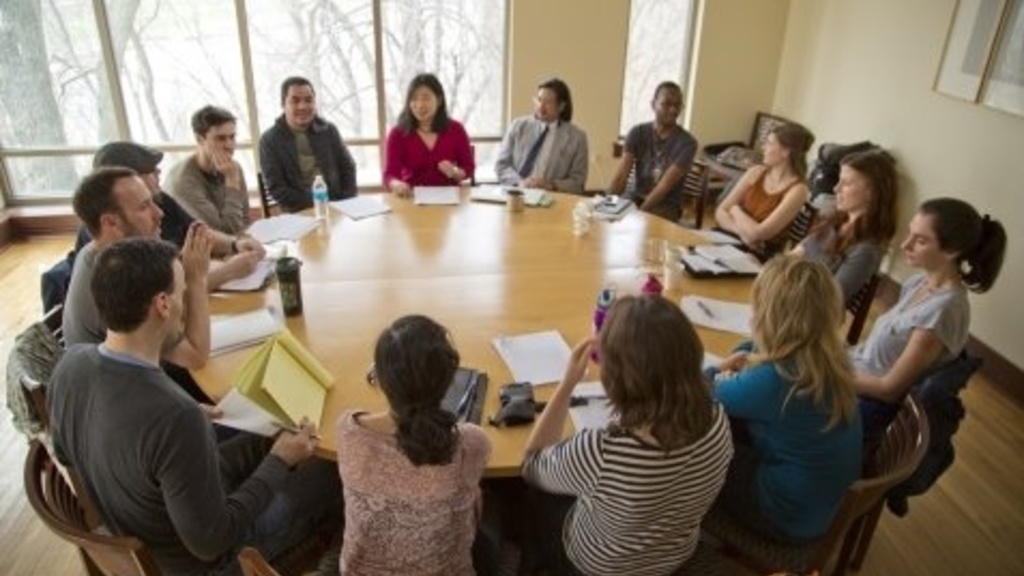
Writing University
This interdisciplinary Working Group will bring together academic and creative writing programs as well as traditional and multimodal composition at the University of Iowa for the following purposes:
—To discuss how creative and academic writing overlap, intersect, and inform one another, as they have often been viewed as different and competing;
—To discuss how we can help one another increase both academic and creative speaking, writing, and multimodal experiences and instruction for University of Iowa students across disciplines and majors in the arts and humanities and social and natural sciences;
—To put together a mega-proposal for programs and funding that address (1) and (2); and
—To increase our knowledge of and share our own scholarly and creative work in these areas.
We envision meetings every two weeks to put together a mega-proposal from parts of our five respective proposals for the Provost’s initiative due in December. After the mega-proposal is submitted, monthly meetings would involve invited speakers and discussions of a common set of readings on the above themes. They would also involve presentations of our own scholarly work on these issues.
To learn more about this group, please contact Carol Severino.
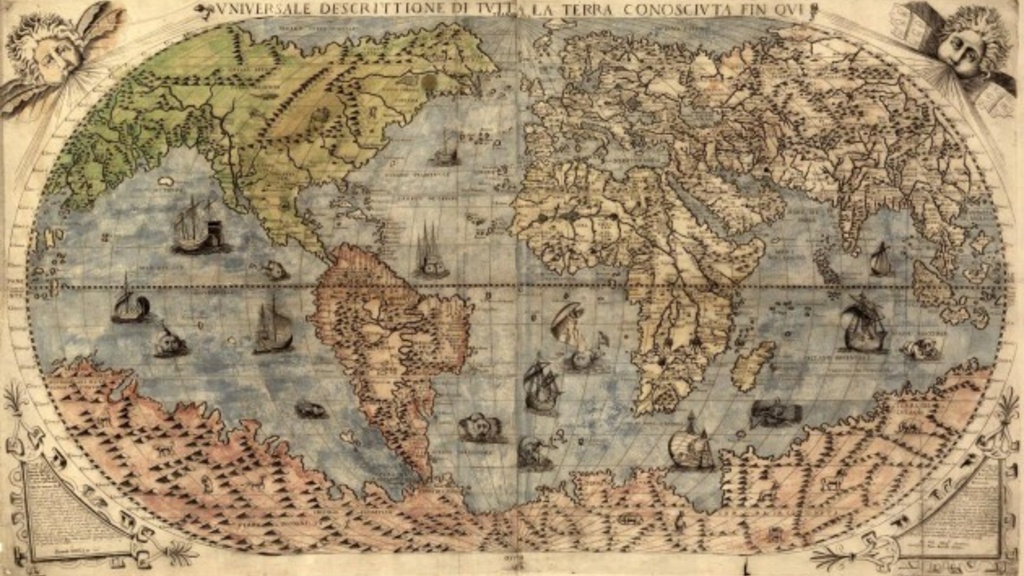
Circulating Cultures
The Circulating Cultures Working Group, now in its seventh year, brings together faculty from a range of disciplines: Anthropology, Arabic, Art & Art History, English, Film Studies, French & Francophone Studies, German, History, Spanish and Portuguese, and Swahili. Group members share a common interest in the circulation of cultures in print, digital, oral, and audiovisual forms, especially as print crosses borders to create transnational disruptions and connections. Topics for individual projects along with collective readings have included the circulation of architectural forms, photography, and film; theories of material culture, literature and deep time, Creolization and hybridity, capitalism and modernity; and responses to environmental crises.
If you would like to learn more about this working group, please contact its co-directors, Elke Heckner (elke-heckner@uiowa.edu) and Julie Hochstrasser (julie-hochstrasser@uiowa.edu).
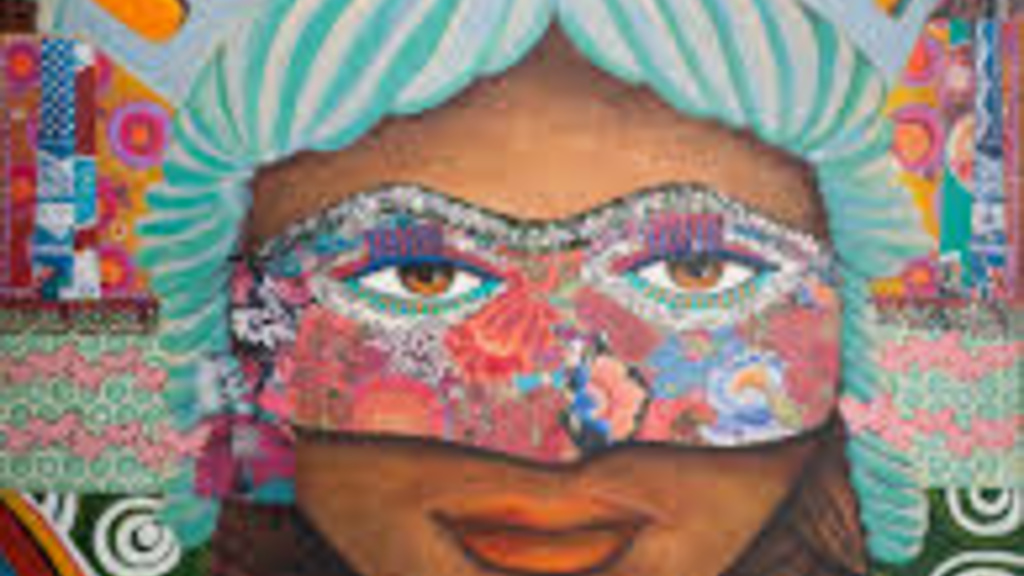
Latina/x/o Migration and Education
The Latina/x/o Migration and Education Working Group explores the contemporary knowledge production and experiences of migrants moving between the Americas. Through a critical and interdisciplinary approach, the group seeks to highlight how migrants utilize their own and/or their communities’ knowledges to negotiate new terrain in different destinations. Bringing together scholars in Latina/x/o Studies, Education, American Studies, Languages, and Political Science, it is crucial to reflect on, yet, beyond schooling processes with a particular interest in the Midwest. As a site of historical and continual presence of Latina/x/os, the Midwest necessitates a current analysis of how structures of power shape the intersection between education and migration and the implications for non-migrants and institutions alike. Members will interrogate such intersection through interdisciplinary theories and methods. Ultimately, by examining education broadly, the goal is to propose a research agenda that documents the knowledge production and needs of migrants currently living in, or tied to, the Midwest.
To learn more about this group, please contact its director, Lisa Ortiz.
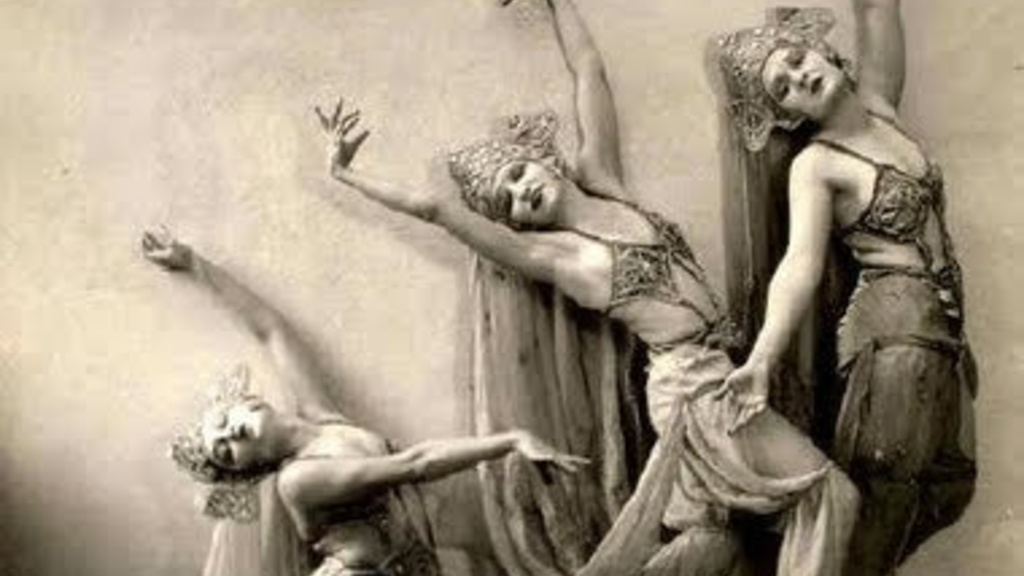
Performance Studies
This working group brings together scholars and artists working in, around, and between all of the fields with which performance studies engages. The group's objective is to provide a monthly forum in which members present, read, watch, listen to, and discuss new scholarly, creative, and cultural work that not only encompasses the entire expanse of performance studies, but also pushes beyond the field’s current frontiers. This group is particularly interested in thinking through the ways in which disciplinary differences manifest in performance studies work.
To learn more about this group, please contact its co-directors, Kim Marra (kim-marra@uiowa.edu) and Jen Buckley (jennifer-buckley@uiowa.edu).
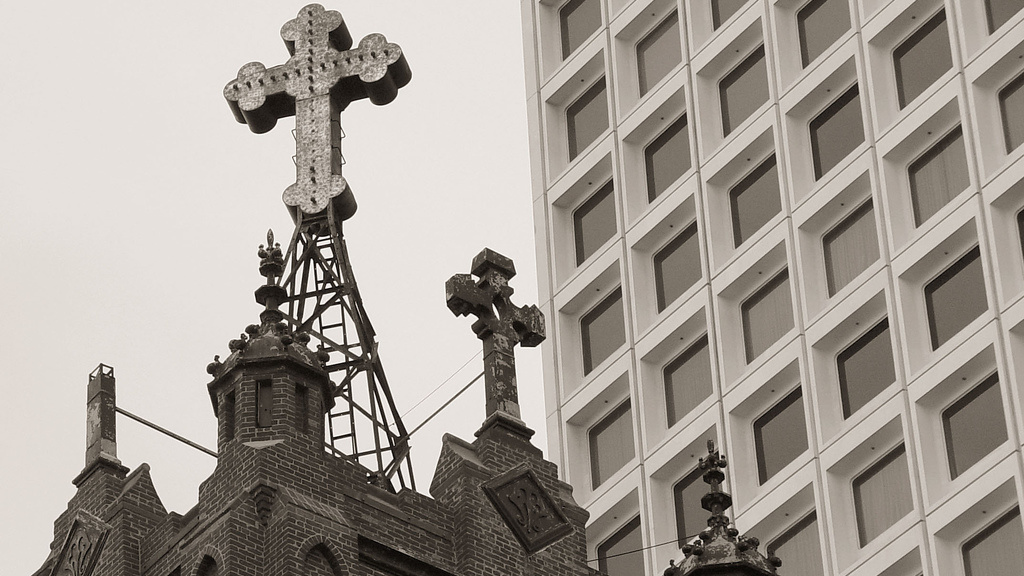
Secularity & Sanctity in the Modern Era
This interdisciplinary working group explores both historical and thematic questions related to the constitution and definition of secularism and religion in modernity. Some of the key questions we examine include:
What have been the qualitative differences in the location of religion between the premodern and modern/contemporary period?
What has been the role of religion in shaping modernity and postcolonial national, cultural, and ethnic identity?
In what specific ways has religion been involved in shaping the mundane material aspects of life in areas such as architecture, food, music, and travel?
How have the secular and the sacred been constituted as separate realms?
How has secularism contributed to the identification of public and private life?
The short-term goal of the group is to prepare a conference to be held in the fall semester of 2020. In our monthly meetings, we will read key literature to lay the ground for a shared set of concepts, theories, and methodologies, present our research-in-progress, and identify speakers to be invited for the conference. Selected papers from this conference will be published in an edited book or a special issue for an academic journal.
Our long-term goal is to turn this working group into an expanded research network of scholars, students, community organizers, artists, and journalists. We envision that our scholarship and teaching endeavors will contribute to the ongoing dialogue on religion and public life in this increasingly conflict-ridden world.
To learn more about this group, contact Jenna Supp-Montgomerie at jenna-supp-montgomerie@uiowa.edu.